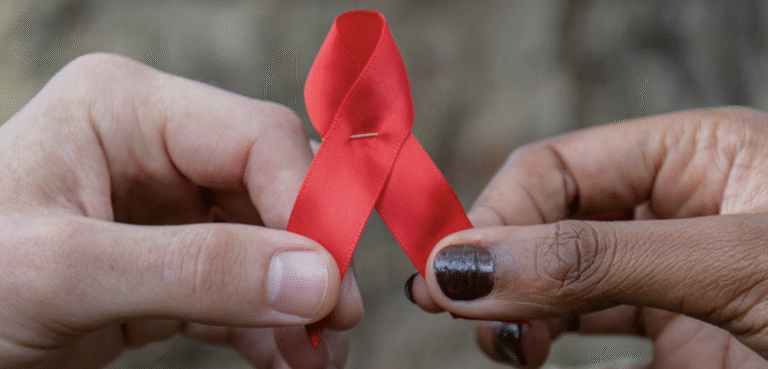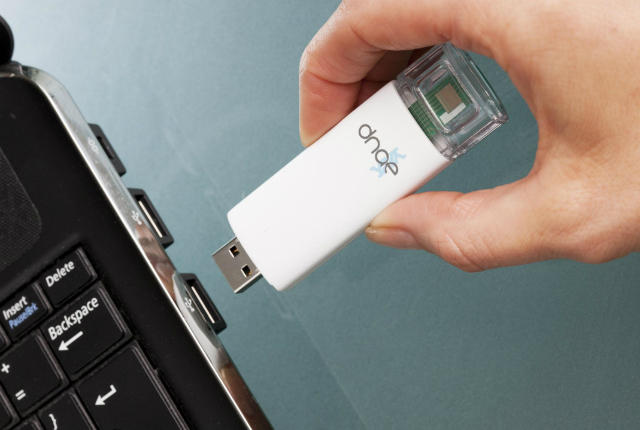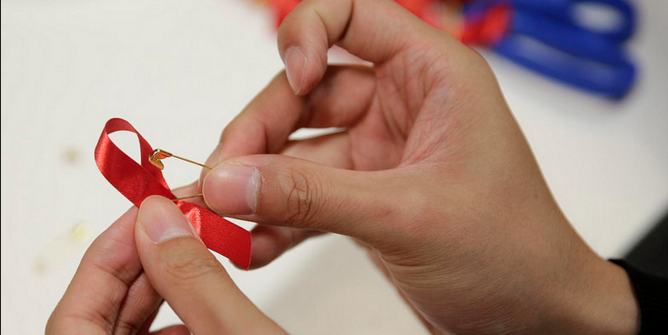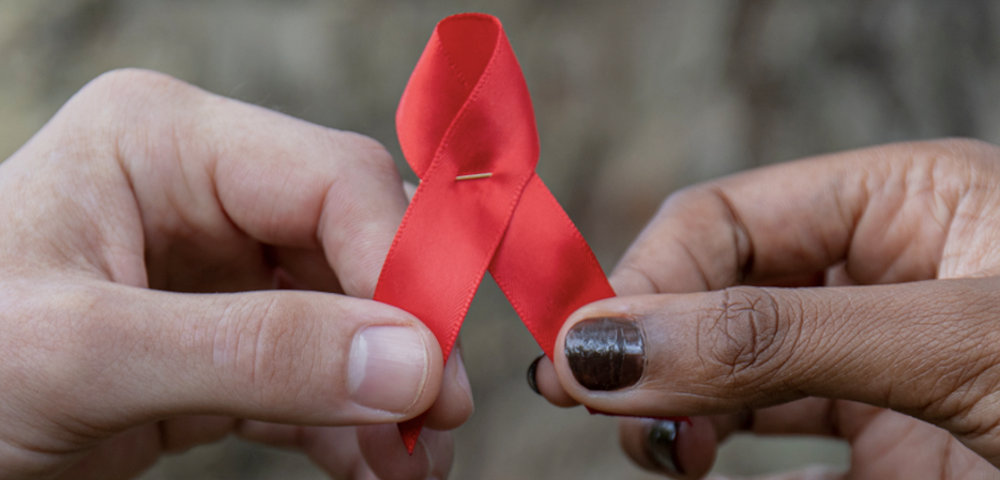
Scientists develop a USB stick HIV test

SCIENTISTS in the UK have developed a test for HIV that rapidly measures levels of the virus in the blood using just a USB stick plugged into a laptop.
Developed at the Imperial College London in conjunction with DNA Electronics, the test requires only a drop of blood to measure a patient’s levels of HIV-1.
A mobile phone chip implanted in the USB drive detects a change in acidity caused by the presence of the virus and converts it to an electrical signal, recording the result on the drive so it can then be accessed on a computer or electronic device.
Current tests to monitor HIV viral load take three days or more and require a blood sample to be sent to a laboratory.
In their paper published at journal Scientific Reports, the team behind the technology showed that the USB test was 95 per cent accurate across 991 samples, and that on average the test could produce a result in a mere 21 minutes.
The test could be a massive step forward for the millions of people living with the virus in developing countries. As the paper notes, HIV is most effectively treated with regular monitoring alongside antiretroviral combination therapy.
“At the moment, testing often requires costly and complex equipment that can take a couple of days to produce a result. We have taken the job done by this equipment, which is the size of a large photocopier, and shrunk it down to a USB chip,” the study’s lead author Graham Cooke said in a statement.
Dramatically increasing accessibility to HIV monitoring technology will help not only those with limited access to healthcare infrastructure but people living with HIV the world over.
While the technology is still in early development, the scientists are exploring the possibility of adapting the technology to detect other viruses such as hepatitis.
It is yet another major development in HIV research out of Britain following news that a 44-year-old male patient participating in a university trial has shown no signs of the virus after treatment.









